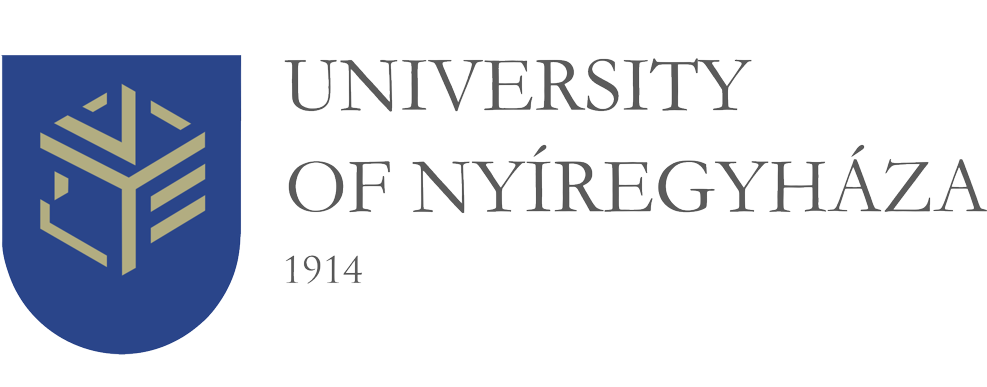Research area and keywords of research:
Mineral nutrition of plans, phytoremediation, toxic elements
Name of the researcher(s) and research group:
„Sustainable Plant Nutrition Management and Phytoremediation” research group (2008-2020)
Leader:
Prof. Dr. habil. László Simon CSc. university professor, departmental head, Doctor of the Hungarian Academy of Sciences
Members:
- Katalin Irinyiné Dr. Oláh PhD assistant professor
- Eszter Kalmárné Dr. Vass PhD college professor
- Dr. Béla Szabó PhD associate professor
- Dr. Miklós Szabó PhD associate professor
- Dr. Csilla Tóth PhD associate professor
- Dr. Uri Zsuzsanna PhD associate professor
- Dr. Szabolcs Vigh PhD assistant professor
- Dr. György Vincze PhD college professor
Name of the Institute:
University of Nyíregyháza, Institute of Engineering and Agricultural Sciences, Department of Agricultural Sciences and Environmental Management
Research objectives:
Research activities of this research group are scoped on the study of the sustainable plant nutrition management, and phytoremediation of toxic elements.
Description and results of research:
Our activities are the followings:
- In open-field trials the impacts of various mineral fertilizers and wastes (e.g. municipal sewage sludge sediment, municipal sewage sludge compost, municipal biocompost) and mineral amendments (rhyolite tuff, willow ash are) are studied on energy crops (willow, black locust, giant reed). Yield, mineral nutrient plant uptake and soil leaching, accumulation of toxic elements in plants, microanatomical and physiological (enzyme activity, photosynthesis) responses of plants, and microbial activity, respiration of soils are followed.
- At our University Training Farm (Nyírtelek, Ferenctanya) open-field large plot experiments are conducted to study the effects of mineral fertilizers (e.g. ammonium nitrate, ammonium nitrate with calcium-magnesium carbonate, sulphuric urea), organic manures (e.g. poultry manure), biowastes (municipal sewage sludge compost), mineral amendments (rhyolite tuff, dudarit, alginit) and innovative foliar fertilizers in maize, wheat hybride and common wheat cultures.
- At organic farming areas of University Training Farm macro- and micro-nutrient turnover is studied in various second sowing green manure crops (e.g. daikon radish, sunn hemp, multi-component green manure crop mixtures). Yield and mineral nutrition of after cultured sunflower, physical and biological soil conditions of soils are studied.
- In collaboration with University of Debrecen Institute of Ecology at Debrecen-Lovászzug area the toxic element phytoremediation potential of various herbaceous (e.g. Arundo, Sorghum sp.) and woody plants (elm and white willow sp.) is studied. Plants are grown in former sewage settling ponds where sewage sediment is covered now with uncontaminated soil. Processes in contaminated soils and in plants are modelled running growth chamber pot experiments.
Research partners from other institutions:
University of Debrecen
Other information:-
Publications (max. 5):
-
Simon L. 2014. Potentially harmful elements in agricultural soils. In: Bini, C. & Bech, J. (eds.), PHEs, Environment and Human Health. Potentially Harmful Elements in the Environment and the Impact on Human Health. Springer, Dordrecht, Heidelberg, New York, London (ISBN 978-94-017-8964-6), pp. 85-137, 142-150.
- Simon, L., M. Makádi, Gy. Vincze, Zs. Uri, K. Irinyiné Oláh, L. Zsombik, Sz. Vigh, B. Szabó, 2018. Long-term field fertilization experiment with energy willow (Salix sp.) − Elemental composition and chlorophyll fluorescence in the leaves. Agrochemistry and Soil Science 67(1): 91-103.
- Simon, L., B. Szabó, Gy. Vincze, M. Szabó, J. Koncz, 2018. Impact of fertilization on the mineral nutrition and yield of Salix triandra x Salix viminalis and Robinia pseudoacacia L. bioenergy crops. Agrochemistry and Soil Science 67(1):105-119.
- Kryvtsova, M., N. Bobryk, L. Simon, 2019. Soil microbiota under the conditions of an open field experiment of fertilizing soil by energy willow. Biotechnologia Acta 12(4): 27-33.
- Szabó, B ; M. Szabó, Cs. Varga, Zs. Uri, Gy. Vincze, L. Simon, 2013. The effects of rhyolite tuff on maize yield. In: Ungureanu, N.; Cotetiu, R.; Sikolya, L.; Páy, G. (eds.) Proceedings of the International Multidisciplinary Conference Nyíregyháza, Hungary. Bessenyei Book Publisher, Nyíregyháza. pp. 164-167.
Our scientific results are published in conference abstracts and proceedings, in reviewed journal papers, and in book chapters in Hungarian and English language. Our publications can be found in Magyar Tudományos Művek Tára (www.mtmt.hu) – Hungarian Scientific Works Repository, and at www.nye.hu/agrtud.


